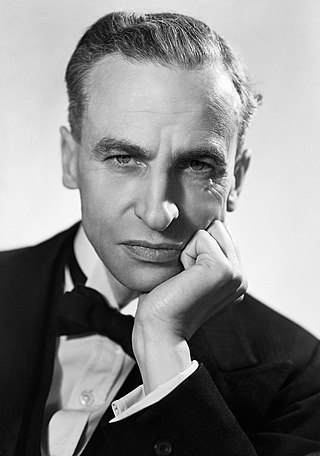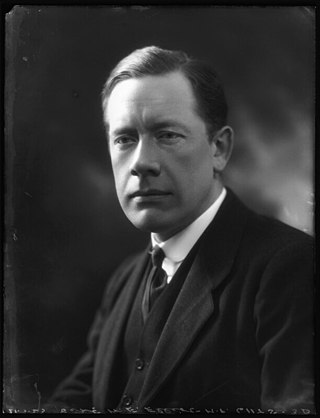
Archibald Henry Macdonald Sinclair, 1st Viscount Thurso,, known as Sir Archibald Sinclair between 1912 and 1952, and often as Archie Sinclair, was a British politician and leader of the Liberal Party.

The 1935 United Kingdom general election was held on Thursday 14 November, and resulted in a large, albeit reduced, majority for the National Government now led by Stanley Baldwin of the Conservative Party. The greatest number of members, as before, were Conservatives, while the National Liberal vote held steady. The much smaller National Labour vote also held steady but the resurgence in the main Labour vote caused over a third of their MPs, including National Labour leader Ramsay MacDonald, to lose their seats. It was the last election in which the largest party won a majority of votes cast.

Alfred Ernest Brown was a British politician who served as leader of the Liberal Nationals from 1940 until 1945. He was a member of Parliament and also held many other political offices throughout the Second World War.

Walter Elliot was a British politician of Scotland's Unionist Party prominent in the interwar period. He was elected to the House of Commons of the United Kingdom in 1918, and besides an interval of months in 1923–24 and 1945–46, remained in parliament until his death. His Cabinet roles were as the Minister of Agriculture, Fisheries and Food in the National Government (1931–1935) of Ramsay MacDonald; as the Secretary of State for Scotland in the National Government (1935–1937) of Stanley Baldwin; and as Minister of Health in Neville Chamberlain's National Government (1937–1939) and the short-lived Chamberlain war ministry.
Isle of Ely was a county constituency represented in the House of Commons of the Parliament of the United Kingdom, centred on the Isle of Ely in Cambridgeshire. Until its abolition in 1983, it elected one Member of Parliament (MP) by the first past the post system of election.

Henry Graham White, known as Graham White, was a radical British Liberal Party politician.
The 1925 Eastbourne by-election was a parliamentary by-election for the British House of Commons constituency of Eastbourne, Sussex on 17 June 1925.

Robert Hamilton Bernays was a Liberal Party and later Liberal National politician in the United Kingdom who served as a Member of Parliament (MP) from 1931 to 1945.
Sir Austin Uvedale Morgan Hudson, 1st Baronet was a Conservative Party politician in the United Kingdom.

Sir Percy Alfred Harris, 1st Baronet, PC was a British Liberal Party politician. He was Liberal Chief Whip and Deputy Leader of the Liberal Parliamentary Party.
The 1945 Middlesbrough West by-election was a parliamentary by-election held on 14 May 1945 for the House of Commons constituency of Middlesbrough West.
The 1940 Middlesbrough West by-election was a parliamentary by-election held on 7 August 1940 for the British House of Commons constituency of Middlesbrough West.

Frank Kingsley Griffith was a British Liberal Party politician, barrister and County Court judge.

Sir John Hobbis Harris was an English missionary, campaigner against slavery and Liberal Party politician.

The 1923 Willesden East by-election was a parliamentary by-election for the British House of Commons constituency of Willesden East held on 3 March 1923. The constituency was a large one extending from Kilburn in the south to the Welsh Harp and on to Neasden.
Stephen Noel Furness, was a British barrister and Liberal National politician. He was Member of Parliament for Sunderland from 1935 to 1945. From 1938 to 1940 he was made a Lord Commissioner of the Treasury.
The 1927 Westbury by-election was a by-election held on 16 June 1927 for the British House of Commons constituency of Westbury.
The 1943 Eddisbury by-election was a parliamentary by-election for the British House of Commons constituency of Eddisbury on 7 April 1943.
The 1937 Combined English Universities by-election was a parliamentary by-election for the British House of Commons dual member constituency of the Combined English Universities held on 22 March 1937.
The Popular Front in the United Kingdom attempted an alliance between political parties and individuals of the left and centre-left in the late 1930s to come together to challenge the appeasement policies of the National Government led by Neville Chamberlain.










